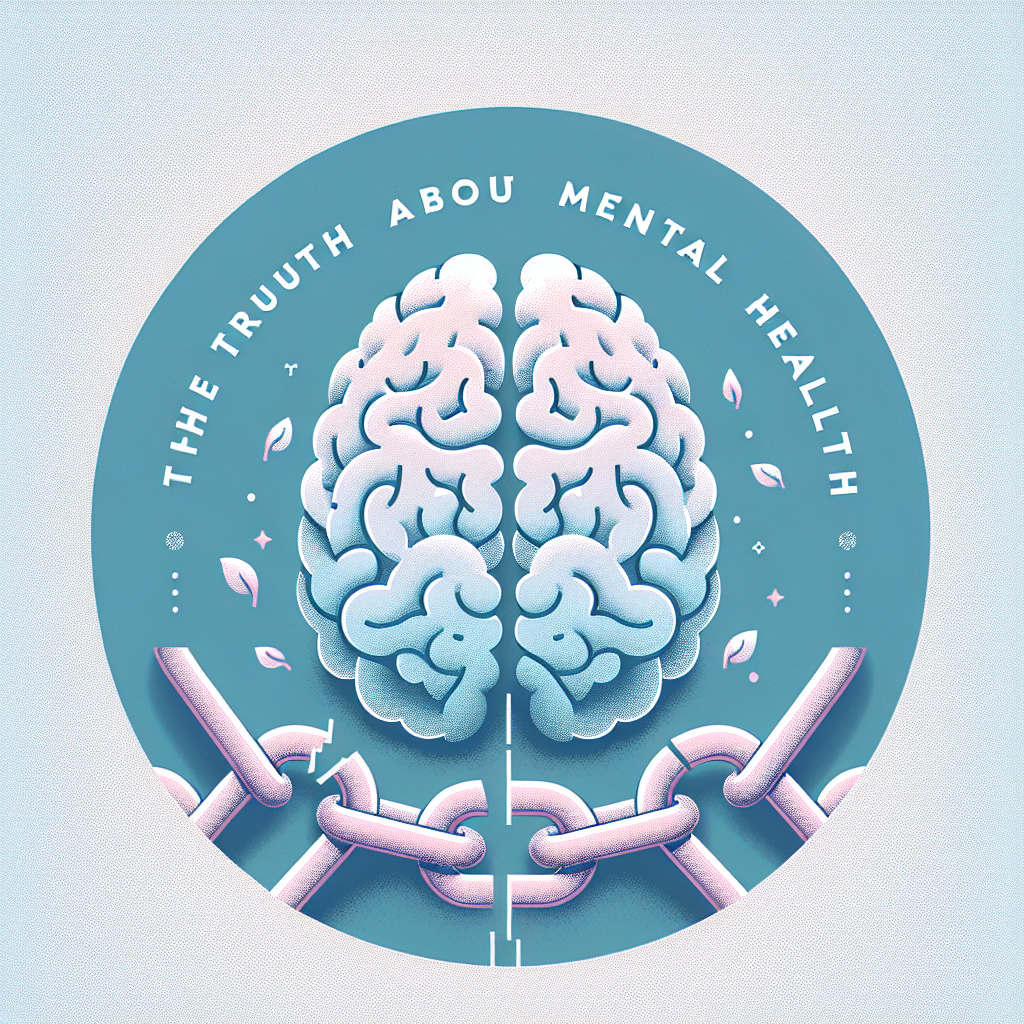Title: “The Truth About Mental Health: Breaking the Stigma”
In today’s society, we have tried to open our minds to discuss topics that were considered too private or too taboo. However, one issue remains in the shadows: mental health. Mental health and related issues have—for too long—been wrapped up in stigma and judgment. This stigma delays diagnosis, prevents individuals from getting help, and makes them unable to talk openly about mental health. It’s time to break this stigma and openly discuss the truth about mental health.
Mental health problems are incredibly common; in fact, one in four adults will experience mental illness at some point each year. However, the deep stigma associated with mental health often prevents individuals from seeking help. This stigmatization creates silence, fostering an environment where people suffering from these conditions feel like they have to struggle in isolation.
In reality, mental health disorders are not a sign of personal weakness. They are not simply “out” or victorious by sheer will. Like physical illnesses, mental illnesses are real health conditions that can have a significant impact on someone’s daily life. They require diagnosis, treatment and ongoing care.
Mental illness encompasses a wide range of disorders, each with its own characteristics and severity. They include common disorders such as anxiety and depression, but also bipolar disorder, obsessive-compulsive disorder (OCD), post-traumatic stress disorder (PTSD), schizophrenia and others. No one chooses to have a mental illness, just like no one chooses to have a physical illness.
The biological basis of mental illness makes it clear how real these conditions are. Mental illnesses are often associated with changes in the structure, chemistry and function of the brain. For example, depression is linked to changes in the hippocampus and amygdala, brain areas responsible for emotions and memory. Schizophrenia, on the other hand, has been linked to abnormal brain structure and function. This emphasizes that mental health problems are not imaginary, and are not only in the mind of the individual.
Mental health stigma is fueled by a lack of understanding and misinformation. Education and awareness play a key role in dispelling misconceptions and breaking down barriers. It is necessary to inform and educate citizens about what mental health really is, what it entails and how it affects individuals and society. We must dispel harmful stereotypes and prejudices that hinder understanding and empathy.
Another way to combat the stigma of mental health is to encourage people to share their experiences, to tell their stories. People with first-hand experience of mental health issues can provide insights, break down misconceptions and show others that they are not alone. Celebrities, including prominent actors, musicians and athletes, have begun to openly share their struggles with mental health. This is a positive change as it promotes understanding and normalizes the discussion around mental health.
However, reducing stigma is not just about changing attitudes; is to change actions. This includes implementing and enforcing anti-discrimination laws and policies, improving mental health support services, and integrating mental health care into mainstream health care to make it more accessible.
As a result, mental health problems are just as real and serious as physical health problems. As a society, we must strive to eliminate the stigma rightly associated with mental health by encouraging open discussions, disseminating accurate information and providing support. It is vital to remember that mental health matters, and we all need to act to normalize conversations about it. It’s time to break the silence and break the stigma, because mental health is health.




